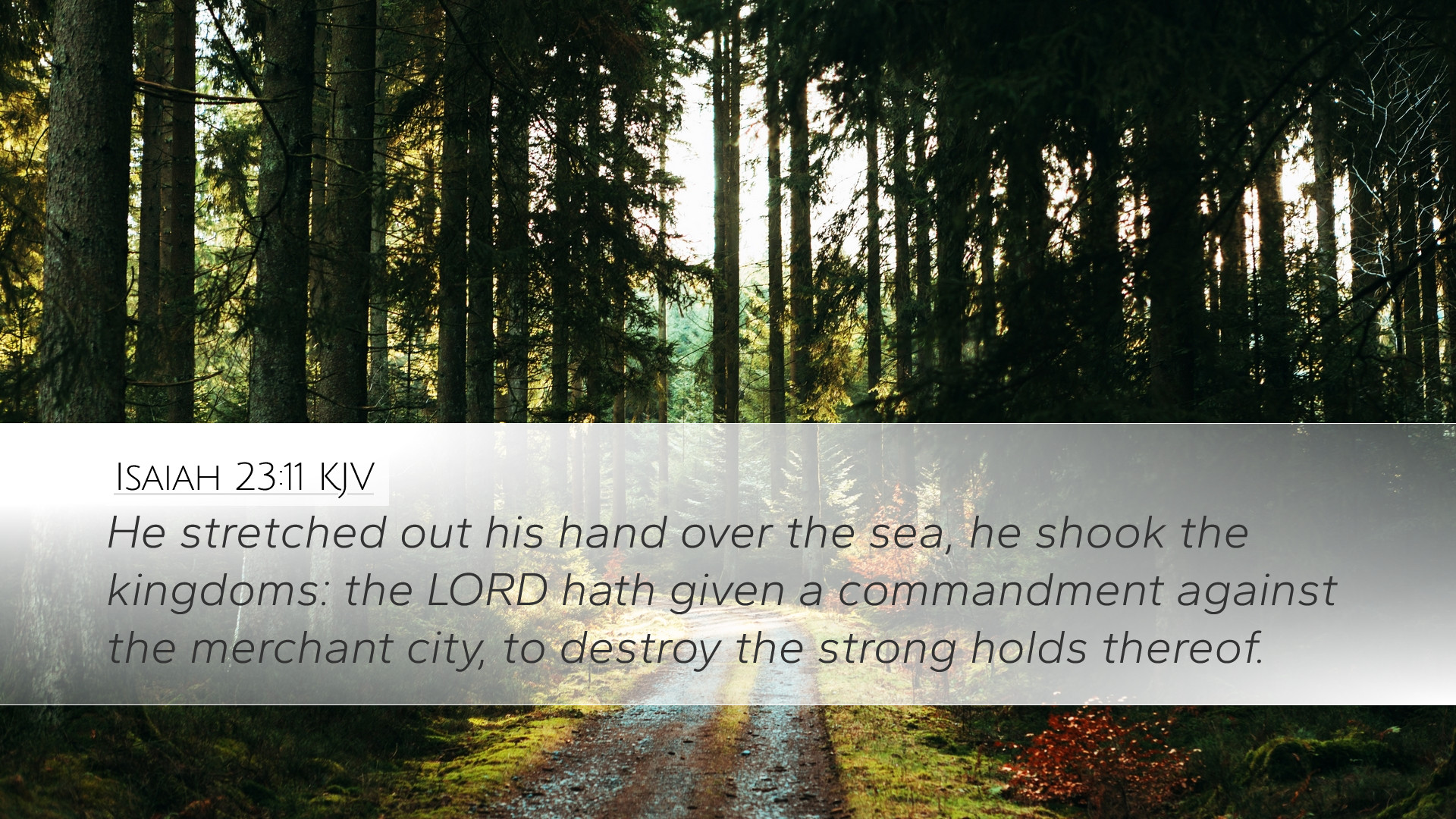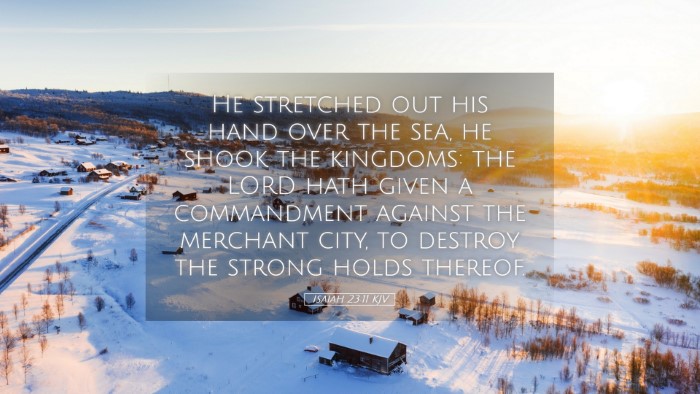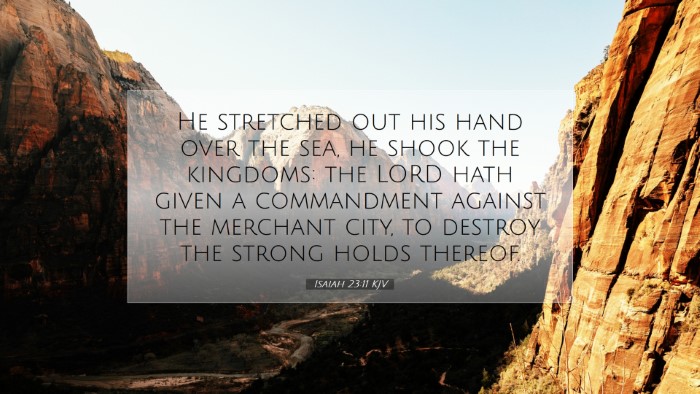Commentary on Isaiah 23:11
Verse: "He stretched out his hand over the sea, he shook the kingdoms: the LORD hath given a commandment against the merchant city, to destroy the strong holds thereof."
Contextual Background
Isaiah 23 prophesies the impending judgment upon Tyre, a significant commercial city that played a vital role in the trade of the ancient world. This chapter serves as a warning of divine retribution for the pride, corruption, and idolatry associated with Tyre and its mercantile activities.
The Divine Hand in Judgment
Isaiah begins by illustrating God's sovereignty over nations and nature. The imagery of the Lord "stretching out his hand over the sea" indicates His power to control both the natural elements and the affairs of mankind, asserting that no kingdom can withstand His authority.
- Divine Authority: The phrase reflects God's omnipotence; He is the ultimate ruler over all nations, signifying that His judgment does not discriminate.
- Shake the Kingdoms: The shaking of kingdoms suggests a great upheaval, reminiscent of both physical earthquakes and political turmoil under divine decree.
Implications for the Merchant City
The reference to the "merchant city" encapsulates not only Tyre but also serves as a cautionary representation of all cities that prioritize wealth and trade over spiritual integrity.
- Futility of Wealth: Public domain commentators like Matthew Henry point out that reliance on commerce and wealth can lead to spiritual bankruptcy and eventual destruction.
- Covenant and Commandment: The mention of the Lord's command against the merchant city serves as a reminder that God's word is final; what He has decreed must come to pass.
Strong Holds: A Study of Strength
The term "strong holds" refers not only to physical fortifications but also to the pride and confidence that the citizens of Tyre place in their wealth and influence.
- Human Security vs Divine Will: Adam Clarke emphasizes that even the strongest defensive mechanisms fail against divine judgment. What humans trust for security can become their greatest downfall.
- Spiritual Strongholds: The true strength of a city comes from its faithfulness to God. Therefore, the destruction of its strongholds signifies a deep and profound spiritual loss.
Lessons for Today
Isaiah 23:11 serves as both a warning and a lesson relevant to modern believers, emphasizing the timeless truths of divine judgment and the importance of maintaining spiritual integrity amid economic pursuits.
- Evaluation of Priorities: The church today is reminded to assess where its priorities lie, ensuring that commerce, trade, and economic stability do not eclipse its commitment to God.
- The Universal Call to Repentance: This verse offers a general call for nations to seek God’s forgiveness and realign their values with His will.
Theological Reflection
Isaiah’s message is ultimately one of hope and redemption as well. The promise of judgment serves as a precursor to restoration; God's intention is not only to bring destruction but also to bring His people back to Him.
- God as a Just Judge: The dual nature of God’s judgment—both terrifying and redemptive—exemplifies His holiness and love throughout history.
- Encouraging Repentance: The prophetic call invites both individuals and nations to reflect inwardly, seeking true strength not found in wealth but in God’s favor.
Conclusion
Isaiah 23:11 serves as a stark reminder that all human endeavors, especially those linked to economic power, must be subject to divine scrutiny. As modern disciples of Christ, we are encouraged to build our lives, our churches, and our communities on the solid foundation of faith, prioritizing our spiritual commitment over material gain.


